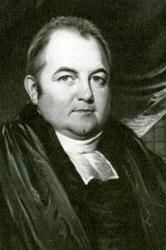- |
User Links
Father of Heaven, Whose Love Profound

Father of heaven, whose love profound
Author: Edward Cooper (1805)Published in 242 hymnals
Printable scores: PDF, MusicXMLAudio files: MIDI
Representative Text
1 O Father, Thou whose love profound
a ransom for our souls hath found,
before Thy throne we sinners bend;
to us Thy pard'ning love extend.
2 Almighty Son, Incarnate Word,
our Prophet, Priest, Redeemer, Lord,
before Thy throne we sinners bend;
to us Thy saving grace extend.
3 Eternal Spirit, by whose breath
the soul is raised from sin and death,
before Thy throne we sinners bend;
to us Thy quick'ning pow'r extend.
4 Jehovah! Father, Spirit, Son,
mysterious Godhead, Three in One,
before Thy throne we sinners bend;
grace, pardon, life, to us extend.
Source: Psalms and Hymns to the Living God #182
Author: Edward Cooper
 Edward Cooper, B.A. of Queen's College, and sometime Fellow of All Souls' College, Oxford, was Rector of Hamstall-Ridware from 1799 to 1833, and of Yoxall, Staffordshire, from 1809 to 1833. He published several volumes of Sermons, and edited a small Collection of Hymns. b. 1770, d. 1833.
--John Julian, Dictionary of Hymnology Go to person page >
Edward Cooper, B.A. of Queen's College, and sometime Fellow of All Souls' College, Oxford, was Rector of Hamstall-Ridware from 1799 to 1833, and of Yoxall, Staffordshire, from 1809 to 1833. He published several volumes of Sermons, and edited a small Collection of Hymns. b. 1770, d. 1833.
--John Julian, Dictionary of Hymnology Go to person page >Text Information
| First Line: | Father of heaven, whose love profound |
| Title: | Father of Heaven, Whose Love Profound |
| Author: | Edward Cooper (1805) |
| Meter: | 8.8.8.8 |
| Language: | English |
| Notes: | Spanish translation: See "Padre en los cielos con amor" by Ellen de Eck |
| Copyright: | Public Domain |
Notes
Father of heaven, whose love profound. E. Cooper. [Holy Trinity.] This hymn, the authorship of which was for a long time uncertain, is now known (on the authority of his son, the Rev. Henry Gisborne Cooper) to be the production of the Rev. Edward Cooper. It was contributed by him to the Uttoxeter Selection, 1805, whence it passed into the Ashbourne Collection, 1808 (Ib. No. ii.); Cooper's own Selection, Lichfield, 1811 (1b. iv.); Cotterill's Selection, 1810-1820; and subsequently into most hymnals throughout English-speaking countries. It is based on the Litany and consists of 4 stanzas of 4 lines, the doxology as in Hymns Ancient & Modern, being a subsequent addition. In stanzas 4,line 4, some hymnals read "all" instead of “us," but the original text follows the Litany in confining the prayer to the suppliant who offers it. The opening line has also been altered as follows;—(1) "Father of all, whoso love from heaven," in the Rev. I. Gregory Smith's Hymn Book, &c, 1855; (2) "Father of all, Whose wondrous grace," in the Rev. F. H. Murray's Hymnal, 1852; (3) "Father of all, Whose wondrous love," in the Cooke and Denton Church Hymnal, 1853. It has also been adapted as a hymn of praise by Miss Harriett Auber, in her Spirit of the Psalms, 1829. This is accomplished by rewriting lines 3, 4 of each stanza. The first stanza reads:—
"
Father of heaven! Whose love profound
A ransom for our souls hath found,
To Thee, great God! the song we raise;
Thee for Thy pardoning love we praise."
This form of the hymn is No. 74 in Dr. Dale's English Hymn Book, 1874. Original text in Hymnal Companion, No. 254. [George Arthur Crawford, M.A.]
--John Julian, Dictionary of Hymnology (1907)


 My Starred Hymns
My Starred Hymns





